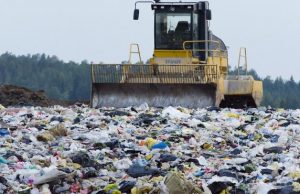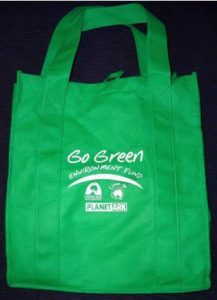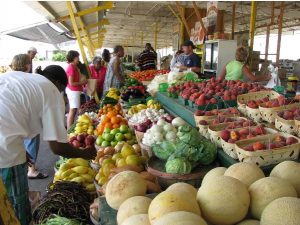
Did you know that the average US citizen produces 4.5 pounds of waste per day? That’s 1642.5 pounds of waste going to landfills every single year. It’s important to reduce the amount of waste we produce because landfills take up lots of land and when waste decomposes, it releases gasses such as methane that contribute to climate change and air pollution. Here are eight ways that we can reduce waste in our everyday lives.
- Use a reusable bottle
Use a reusable water bottle to save money and reduce waste. Plastic water bottles use large amounts of energy and material to be produced, shipped, and stored. The bottles that don’t end up getting recycled decompose in landfills and can possibly leak pollutants.
Having a reusable water bottle is also much more convenient. They are easy to refill, and most of them can hold more water than a plastic bottle.
- Use reusable grocery bags
You’ve probably seen reusable bags on sale at grocery stores like Safeway and Trader Joe’s. If you don’t already have one at home, buy one! Like plastic water bottles, plastic grocery bags take a lot of energy to manufacture and often end up in the trash after being used only once. Reusable grocery bags are bigger, easier to carry, and can be used for a long time. You can also save money in the long run because most grocery stores charge a small fee for every plastic bag you take.
To remember to use a reusable bag the next time you go grocery shopping, put them near your door or in the backseat of your car.

- Recycle
Remember to always recycle, whether it’s at an office, school, or at home. In public areas, keep a lookout for recycling bins. If you want to get into a habit of recycling at home, have another trash can next to your garbage can where you can put things that are recyclable, then put them in your recycling bin for garbage collection day.
- Compost
Composting is as important as recycling, and often overlooked. So many things that get thrown into the trash, from leaves to food scraps to used paper towels, can all be composted. Composting reduces waste and helps the environment by enriching the soil, acting as natural fertilizer, and suppressing plant diseases and pests.
In addition to public compost bins, you can use compost in your very own garden or backyard! To make compost, you need an even amount of browns and greens. The browns include materials like leaves, twigs, and branches. The greens include materials like fruit and vegetable scraps, coffee grounds, and yard trimmings. Put them in a pile and water it, and you should have your own organic compost!
- Avoid single-use food containers and utensils
Try to avoid things like single-use coffee cups, straws, and utensils. Instead, use your own coffee mug or cup, like the ones they sell at Starbucks. Buy a metal straw. Just making these small changes to your lifestyle and encouraging others to do it too can make a big impact on the environment.
- Donate and buy secondhand items
Buy used and secondhand items when you can. This includes thrifting clothes, buying used furniture, and using websites like Ebay and Craigslist. When you have clothes or furniture that you don’t need anymore, don’t throw it out— donate it! This can help the environment tremendously because people throw out a lot of things that can be reused. For example, with fast fashion, clothing factories use huge amounts of energy to produce new clothes that are quickly discarded as the next fashion trend comes along. Buying second hand can also help you save money and support local charities.
- Buy from farmers
Support local farmers by shopping at your local farmers market. Food grown locally doesn’t have to be shipped or refrigerated. Local farmers often use less harmful pesticides and less packaging. Food grown locally is also fresher.

- Use less paper
In today’s digital world, it is easy to avoid using paper. Most companies offer bills by email, and restaurants and stores have e-receipts. Subscribe to magazines online instead of getting printed copies. Use Google Docs or Word to write your assignments instead of notebooks. Often, going digital is much more convenient as well because it is faster and it is harder to lose important documents.
By Vivien Chen
Date: April 5, 2022
Sources
- https://www.epa.gov/facts-and-figures-about-materials-waste-and-recycling/national-overview-facts-and-figures-materials
- https://www.eea.europa.eu/publications/signals-2014/articles/waste-a-problem-or-a-resource#
- https://www.epa.gov/recycle/composting-home#
